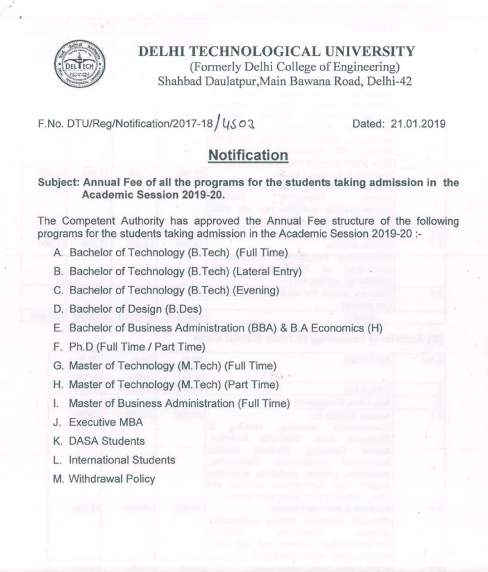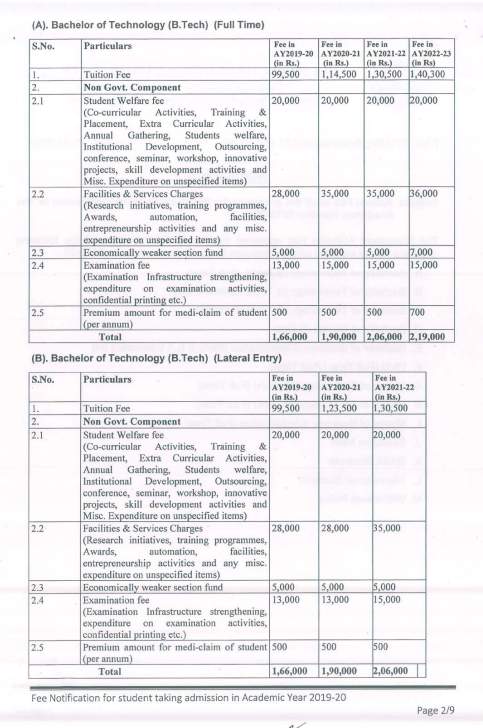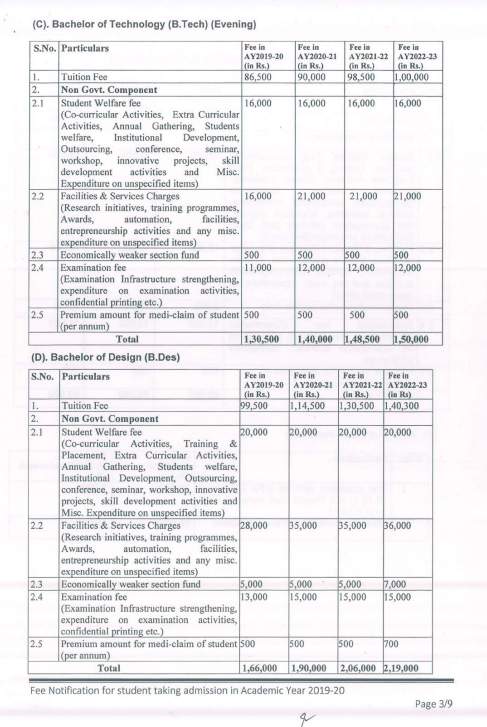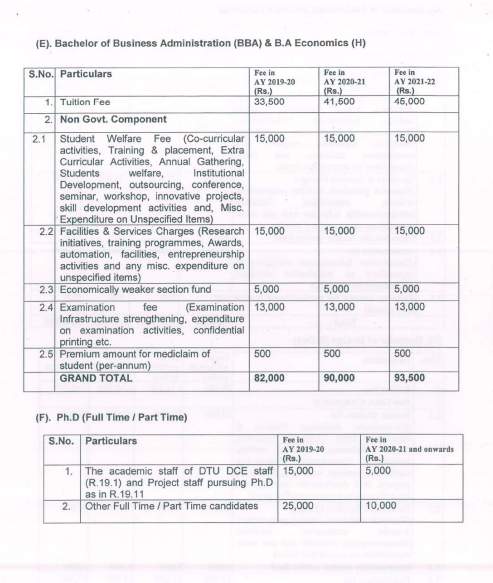|
#3
21st January 2020, 03:38 PM
| |||
| |||
| Re: DCE Tuition Fee
The fee structure for B. Tech. (Electrical Engineering) Program offered by Delhi Technological University (Formerly Delhi College of Engineering) is as follows:     B. Tech. (Electrical Engineering) Program Syllabus Subject Code: ME 101/104 : Course Title: Basic Mechanical Engineering PART A 1 Introduction: Introduction to Thermodynamics, Concepts of systems, control volume, state, properties, equilibrium, quasi-static process, reversible & irreversible process, cyclic process. Zeroth Law and Temperature, Ideal Gas. Heat and Work. 2 First Law of Thermodynamics for closed & open systems. Non Flow Energy Equation. Steady State, Steady Flow Energy Equation. Second Law of Thermodynamics-Kelvin and Plank’s Statements, Clausius inequality, Definition of Heat Engines, Heat pumps, Refrigerators Concept of Energy and availability Carnot Cycle; Carnot efficiency, Otto, Diesel, Dual cycle and their efficiencies. 3 Principles of power production, basic introduction about thermal power plant, hydroelectric power plant and nuclear power plant. 4 Properties & Classification of Fluids, Ideal & real fluids, Newton’s law of viscosity, Pressure at a point, Pascal’s law, Pressure variation in a static fluid, General description of fluid motion, stream lines, continuity equation, Bernoulli’s equation, Steady and unsteady flow. PART B 5 Introduction to engineering materials for mechanical construction Composition, mechanical and fabricating characteristics and applications of various types of cast irons, plain carbon and alloy steels, copper, aluminum and their alloys like duralumin, brasses and bronzes cutting tool materials, super alloys thermoplastics, thermosets and composite materials. 6 Introduction to Manufacturing processes for various machine elements Introduction to Casting & Welding processes. Sheet metal and its operations. Introduction to machining processes – turning, milling, shaping, drilling and boring operations Fabrication of large and small assembles – examples nuts and bolts, turbine rotors etc 7 Introduction to quality measurement for manufacturing processes; standards of measurements, line standards, end standards, precision measuring instruments and gauges: vernier calliper, height gauges, micrometer, comparators, dial indicator, and limit gauges. |